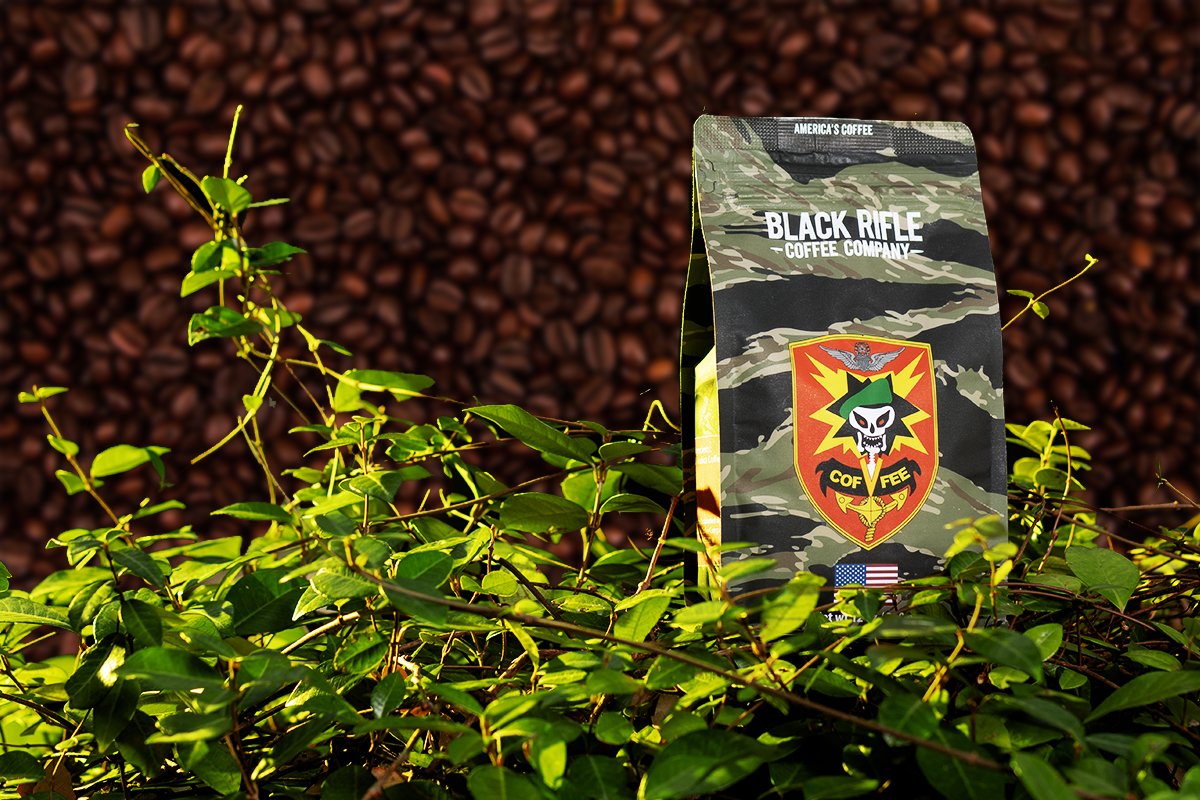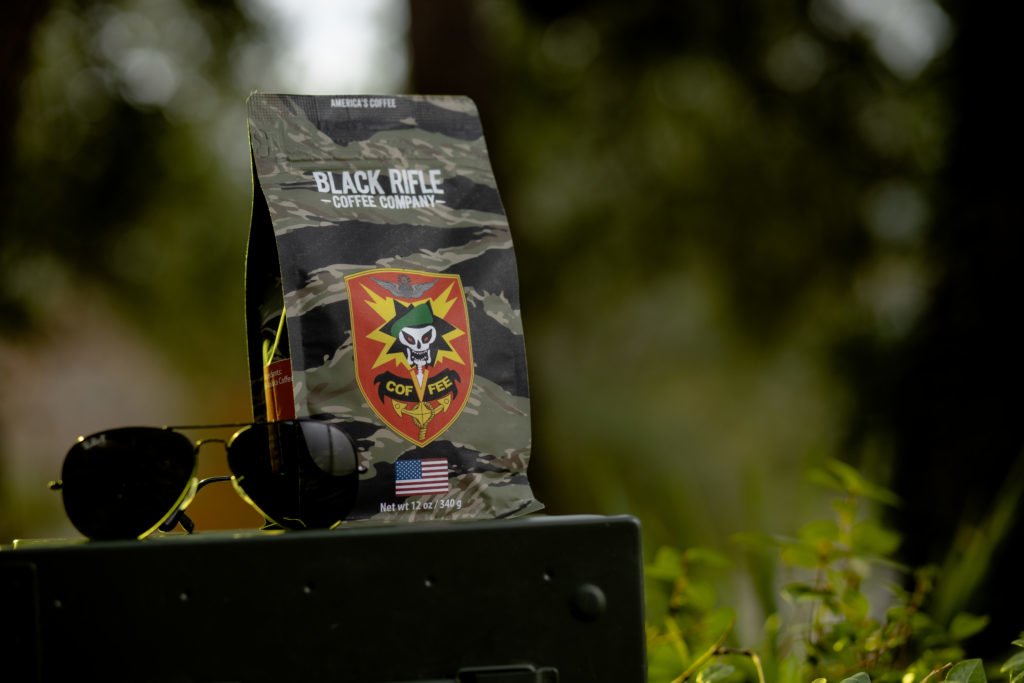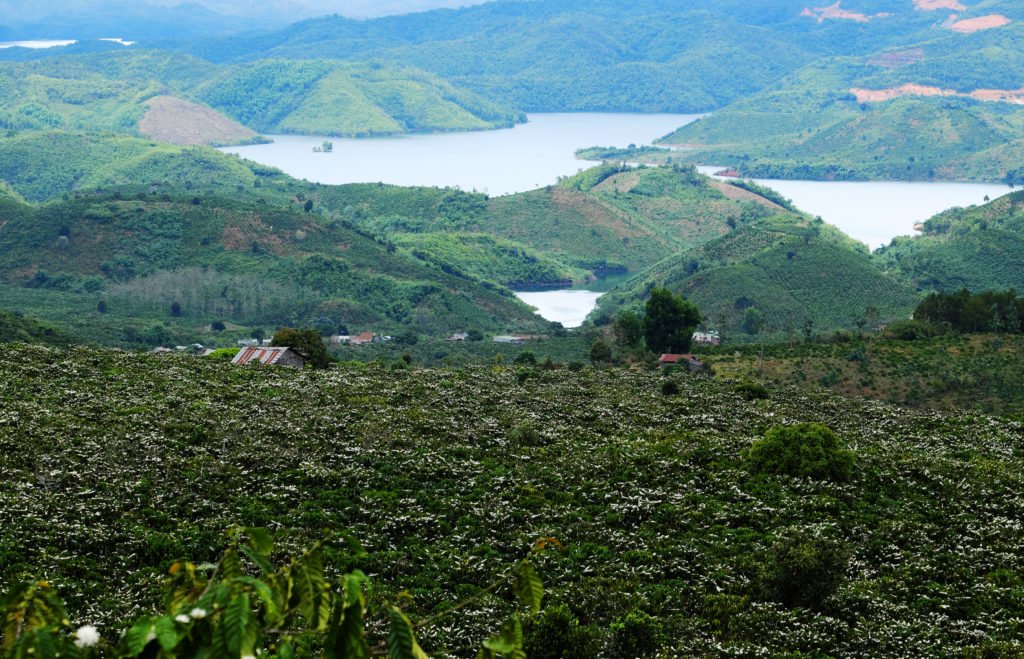
As the second largest world coffee exporter — behind Brazil — Vietnam exports 25 million 60-kilogram bags of coffee per year. While 95 percent of this is the Vietnamese Robusta bean, only 5 percent of the coffee grown and exported in Vietnam is the original Arabica bean introduced by the French during colonization. With the rise of specialty coffee in Vietnam and worldwide, the demand for the more expensive — and more desirable — Arabica bean is getting stronger. The push for high-quality coffee is greater than ever, and it’s beginning to take the Vietnamese coffee industry by storm.
As Robusta beans are less fragrant, more bitter, and have a higher caffeine content than Arabica beans, they are ideal for instant coffee. In fact, the first coffee processing plant in Vietnam was established in 1950 to manufacture instant coffee using Robusta beans.
Even though Robusta beans dominate the coffee fields of Vietnam, there remains a strong underbelly of coffee growers who produce high-quality specialty Arabica beans. Arabica coffee trees grow shorter than their Robusta cousins and require a higher elevation. This limits their spread across Vietnam, finding roots only in the northwestern part of the country and the central highlands in the south.

Cantimor is the most common type of Arabica grown in Vietnam, though this hardy bean isn’t a true Arabica bean. The Robusta-Arabica hybrid isn’t well-known for producing a high-quality cup of coffee. Other types of Arabica grown in Vietnam are of the Bourbon and Mocha varieties, or Moka in Vietnamese.
In Vietnam, coffee beans are generally harvested using a strip-harvesting method. This involves stripping a coffee tree of all its cherries, both ripe and unripe. This is the normal practice for Robusta beans and results in a lower-quality coffee.
Arabica beans require a more selective method of harvesting, which involves continually harvesting only the ripest cherries and leaving the unripe cherries to fully develop. This labor-intensive process requires coffee farmers to pick through their coffee trees every few days to select the beans at their ripest.
After harvesting, Robusta beans are processed using a drying method that spreads the cherries out in the sun for up to two weeks. While this can produce high quality coffee, it requires vigilant watch and exceptionally dry sunny weather.

Arabica coffee is processed using the wet-hull method. Instead of immediately drying the cherries in the sun, the cherries are soaked and rubbed in order to remove skin and pulpy flesh from the bean. Sometimes this is done using a hand-cranked pulper, similar to a meat grinder. The beans are then submerged in water with a fermentation enzyme that helps to rid the beans of any remaining pulp.
After fermenting overnight, beans are rinsed to reveal a clean layer of parchment covering the bean. These parchment-coated beans are dried in the sun for up to a week before being run through a wet-huller. This machine vibrates powerfully to jostle the beans, providing the friction needed to separate the wet parchment from the coffee bean. The intense vibrations can sometimes cause the soft beans to split at the end, resembling a “goat’s nail.”
Once through the wet-hulling process, the beans are spread out to dry in the sun. The beans are raked consistently throughout the day but kept bagged at night to continue fermentation. Without the protective layer of parchment, wet-hulled coffee dries quickly and achieves the ideal moisture content in less than a week.
Only the best beans make it into the Vietnamese Arabica elite coffee. Beans are sorted using sieves of different sizes, then they are sorted again based on various characteristics such as foreign matter, moisture content, color, and wholeness. In Vietnam, it is popular for the Arabica beans to be dark roasted in butter, brewed strong, and served with sweetened condensed milk.

Abbi is an American traveling and living abroad indefinitely. She is an amateur
photographer, solo traveler, avid reader, novice diver, anime nerd, science lover, Reddit
lurker, awkward gamer, world explorer, dirty hippie, vegan scum, vagabond who would
rather be hiking. Currently working in Southern Vietnam as a tour guide in the jungle and
always on the hunt for the best coffee in the region. Current favorite: Vietnamese ‘ca phe
den da’.
BRCC and Bad Moon Print Press team up for an exclusive, limited-edition T-shirt design!
BRCC partners with Team Room Design for an exclusive T-shirt release!
Thirty Seconds Out has partnered with BRCC for an exclusive shirt design invoking the God of Winter.
Lucas O'Hara of Grizzly Forge has teamed up with BRCC for a badass, exclusive Shirt Club T-shirt design featuring his most popular knife and tiomahawk.
Coffee or Die sits down with one of the graphic designers behind Black Rifle Coffee's signature look and vibe.
Biden will award the Medal of Honor to a Vietnam War Army helicopter pilot who risked his life to save a reconnaissance team from almost certain death.
Ever wonder how much Jack Mandaville would f*ck sh*t up if he went back in time? The American Revolution didn't even see him coming.
A nearly 200-year-old West Point time capsule that at first appeared to yield little more than dust contains hidden treasure, the US Military Academy said.












